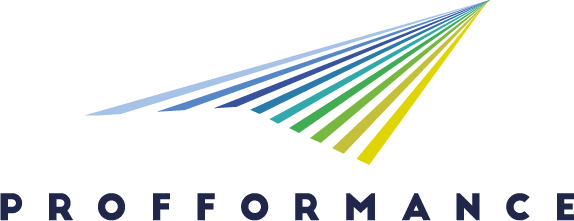FLEX-EMLAB
FLEXible Electric Machines LABoratory
- 01 - Education
- 07 – Engineering, manufacturing and construction
1. Student-centered course design
FLEX-EMLAB is a compact, modular and portable test bench developed at the University of Zagreb Faculty of Electrical Engineering and Computer Science (UniZG FER). Since the spring semester of the 2020/2021 academic year, it has been used in different courses at the bachelor level, as this flexible, low-cost setup enables students to perform practical experiments with different types of electrical machines and energy systems. The FLEX-EMLAB promotes active learning and critical thinking by giving students the opportunity to engage hands-on with electromechanical systems. It allows students to safely and practically explore the key principles of energy conversion, efficiency, torque, power factor, etc. in courses such as Electromechanical Energy Conversion, while demonstrating electric motor control and testing real-time settings and control algorithms in the Fundamentals of Electric Machine Control course. Unlike traditional, bulky and expensive experimental setups, the FLEX-EMLAB is portable, easy to transport and can be quickly set up in different environments, improving its accessibility and versatility. This allows it to be integrated into different learning environments, from large lecture halls to smaller laboratories, making it particularly interesting for institutions with limited resources. The modularity of FLEX-EMLAB's components also allows for easy customization to meet the needs of different lab exercises. All of this encourages and facilitates the learning of problem-solving skills and technical expertise that are crucial for future engineers. To summarize, the key features of the FLEX-EMLAB are: 1. Modular and compact design: It can be easily adapted for different lab exercises, transported and set up in different locations in a institution. 2. Hands-on learning: It provides practical experience with electrical machines and combines theory with real-world applications. 3. Cost-effective: It is more affordable than traditional large-scale stationary equipment and provides high-quality training without high costs. Overall, the FLEX-EMLAB represents a significant advance in engineering education by providing an affordable, space-saving and flexible alternative to traditional experimental setups. Its innovative design transforms the way electrical engineering concepts are taught and provides students with practical skills that are essential for their future careers, especially in key areas such as sustainable energy conversion.
Methodology
Tools, equipment, technology used
Outcomes and outputs, main results
Lessons learnt
Adaptability and sustainability of the best practice (for other institutions)
Promotion of best practice
Scope and impact
- Course/department level
- Faculty level
- Institutional level
- Cross-institutional level
- National level
- EU/EHEA/International level
6.1 Digitalization
- Outstanding, innovative, excellent practices of online / blended / hybrid learning
- Innovative, novel methodology in using digital tools/devices in teaching
- Innovative use of digital administration tools
- Digital skills development and assessment both general and profession-related, embedded in course design, in teaching and assessment
Reasoning: Digitalization is evident in the FOEMC labs where MATLAB/Simulink is used in two of nine labs to simulate DC machines and speed control to improve theoretical understanding prior to practical work with FLEX-EMLAB. Solutions are uploaded via Moodle and graded automatically, while Moodle quizzes before and after the exercises reinforce learning. This integration of digital tools with practical activities increases engagement, promotes digital literacy and enables effective assessment and feedback.
6.2 Internationalization
- Other:
High potential for internationalization.
Reasoning: FLEX-EMLAB promotes internationalization by providing accessible, adaptable, and cost-effective tools for diverse institutions globally. It fosters collaboration among students and educators through hands-on, modular learning making it suitable for various educational settings and cultural contexts. The system’s portability and ease of use allow international institutions to implement it contributing to the development of global competence by enhancing practical skills in electrical engineering.
6.3 Inclusion and diversity, universal design
- Inclusive course design, universally designed divers activities to meet special students' needs
- Universally designed teaching material - adjustable for special needs
- Innovative teaching methodology for inclusion and meet diverse student needs
- (Innovative) use of devices and tools for inclusion
Reasoning: FLEX-EMLAB promotes inclusion through its modular, portable design which allows it to be used in accessible spaces, e.g. where the infrastructure is not suitable for wheelchair users. Safety features like insulated connectors ensure safe learning for all, while the flexible design allows adaptation to different learning needs and provides space for group or individual work. Its affordability expands access for underfunded institutions and ensures equitable opportunities in engineering education.
6.4 Sustainability
- Sustainability goals are addressed in the course(s)
- Teaching material contains profession related sustainability aspects
- Special courses reflecting to UN 2030 Sustainability goals, Green Deal - mini-courses, microcredentials
- Environmental attitude, skill development and assessment either general or profession-related
- Sustainability aspects are considered in all phases of the learning practice - "hidden curriculum"
Reasoning: Sustainability is an integral part of FLEX-EMLAB's practice, as the courses in which FLEX-EMLAB is used explicitly teach basic knowledge that is important for sustainable development, such as energy production, conversion, efficiency, etc. The hands-on methodology encourages critical thinking in terms of sustainable solutions as students can analyze real data on motor efficiency and energy consumption. Competencies related to sustainable practices are assessed through lab exercises and Moodle quizzes to ensure understanding and application of sustainability principles. In addition, FLEX-EMLAB’s modular and portable design encourages resource optimization, waste reduction and sharing. While there is not yet a direct link to the SDGs or community partnerships, the focus on energy issues is linked to global sustainability goals such as the UN 2030 SDGs and the European Green Deal, preparing students to tackle real-world challenges in the transition to green technology.
3.3 Public contact datas
| Name | Email address | Website |
|---|---|---|
| Filip Jukić | filip.jukic@fer.unizg.hr | https://www.fer.unizg.hr/en/filip.jukic |

